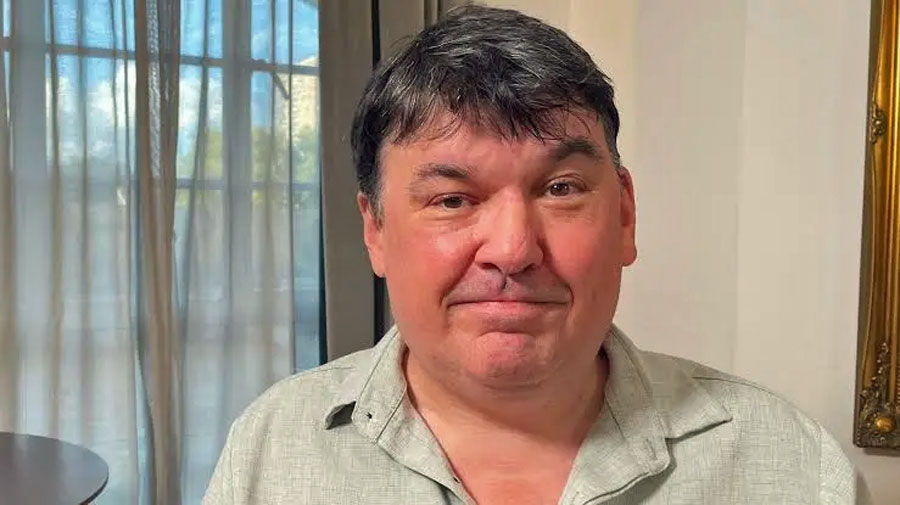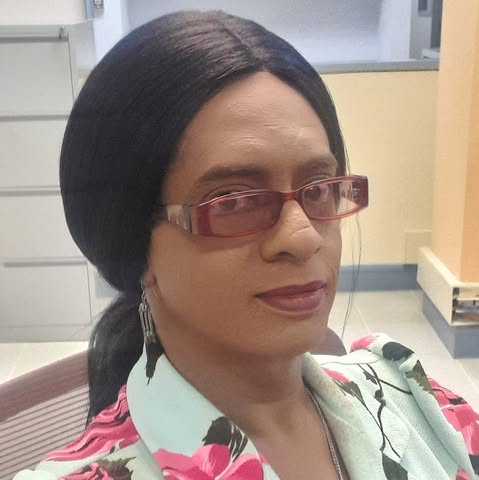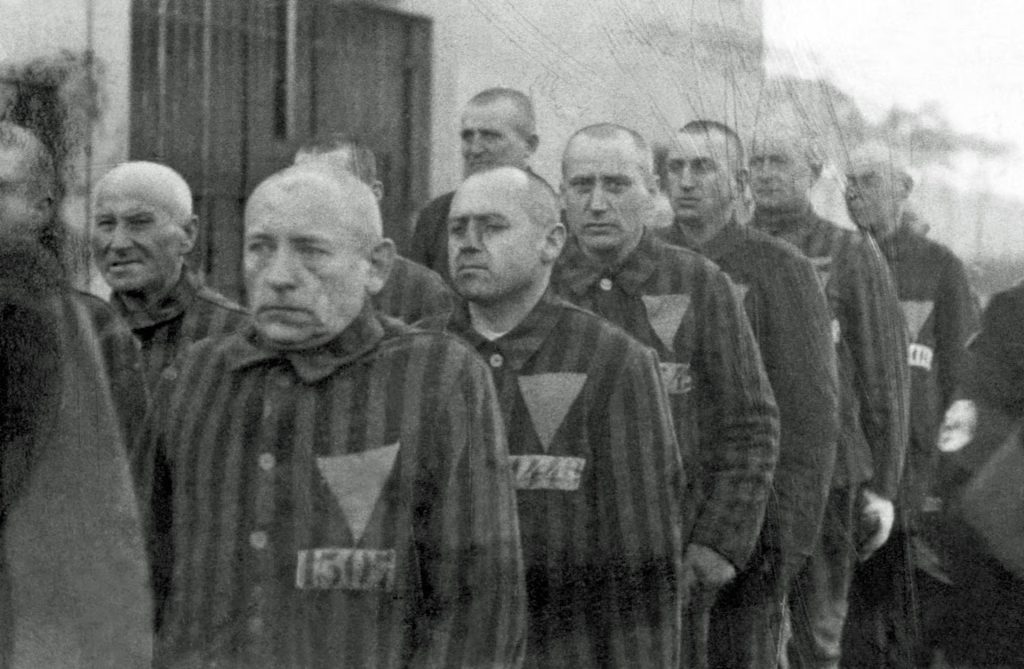Transgender victims of hate speech deserve protection, not more hate
Commentary from Barbados: Freedom of speech is no excuse for violent anti-transgender threats

In the wake of the arrest of anti-transgender Irish comedian Graham Linehan for urging women to kick trans women in the genitals, trans activist Alexa D V. Hoffman writes that anti-trans commentators are falsely defending hate speech as it were protected free speech.
In many countries, including the United Kingdom, hate speech is not protected by law. The rules are different in the United States, where even hate speech is protected by the First Amendment unless it calls for an actual and specific act of violence.
Linehan, a star and co-creator of the mid-1990s comedy “Father Ted,” was arrested by five armed officers at Heathrow Airport in London on suspicion of inciting violence in relation to his posts on X (Twitter). In the most prominent of those posts, from April, he recommended that people who encounter a trans woman in a women’s restroom, should “Make a scene, call the cops and if all else fails, punch him in the balls.”
Asked in an interview if he considered that comment “insulting and violent”, he “agreed, but said: ‘Women have a right to defend themselves from strange men in their spaces.’ ”
The BBC reported that “the head of the Metropolitan Police, Sir Mark Rowley, defended the officers involved, but said he recognised ‘concern caused by such incidents given differing perspectives on the balance between free speech and the risks of inciting violence in the real world’ “.
He called on the British government to “change or clarify” the law that was the basis for Linehan’s arrest.
The BBC reported further:
“Linehan is also facing a separate charge of harassment – which he denied in Westminster Magistrates Court. …
The prosecution alleges he ‘relentlessly’ posted abusive comments about [trans activist] Sophia Brooks, [now] 18, on social media last October, before throwing her phone in a road.”

Below is Hoffmann’s analysis of hate speech in general and Linehan’s actions in particular:
COMMENTARY
By Alexa D V. Hoffmann
When a cisgender girl is forced to lift her shirt to “prove” that she belongs in a bathroom, or a college professor is doxxed for their condemnation of violence against Palestinians, it becomes clear: “free speech” is being weaponised to ultimately undermine the very human rights which it claims to defend. From Britain to Barbados and even beyond, this manipulation is no accident – it’s a deliberate perversion of a fundamental right, one that treaties like the International Covenant on Civil and Political Rights explicitly forbid.
Many of you may be asking: “When does ‘free speech’ become a tool of oppression?” The answer is simple: when it is mistaken as an absolute right, then used to infringe on the rights of others without care or consideration for the harm caused.
Speech is meant to share ideas and foster communal good – planning events, solving problems, holding power accountable. Increasingly, however, it is exploited to harass, threaten, and incite violence against marginalised groups such as LGBTQ+ people, women, immigrants, people of colour, and religious minorities.
Targeting a minor with abuse and defamation
In the United Kingdom, for example, comedian Graham Linehan is undergoing trial for harassment and criminal damage after targeting a then minor with abusive and defamatory comments on social media and later destroying her mobile phone. In any civilised society, this would be an open-and-shut case at least in the court of public opinion; why is a 50-something-year-old man pestering a teenager and even getting into physical altercations with them when the latter is not even a member of his family? However, it seems to be a game changer when the detail emerges that the minor involved happens to be trans. Suddenly, all focus evaporates in relation to Linehan’s obviously negative behaviour and his victim is made out to be yet another “malicious” actor in a system of “cancel culture”. It is also a telling detail that his defence is that he “is not formal, polite or diplomatic”. This defence comes after Linehan himself once said publicly, “If a [trans woman] is in a female-only space, [she] is committing a violent, abusive act. Make a scene, call the cops and if all else fails, punch [her] in the [genitals].” It would appear that, simply because of Linehan’s beliefs about transgender people, he should be excused for anything he says or even does to a trans person, even if it goes outside the bounds of the law.
Let me say this beyond a scintilla of doubt: that is not “free speech”, but hate speech. Language spoken wholly out of animosity and which serves little purpose in helping anyone meaningfully.
‘It is a criminal offence to harass others’
Free speech, while being an inalienable human right, is not, and has never been, absolute. While one has the right to speak freely, one must also bear in mind that it is a criminal offence to harass others (behaving in a manner to cause alarm or distress), threaten them (cause them to believe they are in imminent danger of violence or other malicious acts), slander them (deliberately making false or potentially false statements) or incite violence against them (encouraging others to behave violently towards them). Imagine how silly one would look if one said in the open, “Kill all Indians!” and, when one was arrested and charged for incitement of violence, said, “I’m being victimised over words! People are too sensitive these days and need to grow a thicker skin!” Indeed, there are many people who make abhorrent statements about minority groups which fit the dictionary definition of bigotry, but would insist upon re-framing their prejudices as simply “debating” a subject. This is why international law exists to draw these clear lines.
One must bear in mind that all human rights are interconnected and interdependent; to violate one is to threaten all of them. The ICCPR, in Article 19, guarantees free expression but clarifies that it “carries with it special duties and responsibilities,” and that may be necessary to restrict that right, “for the respect of the rights and reputations of others,” and,” for the protection of national security or of public order, or of public health or morals”. Article 20 goes even further, stating that, “any propaganda for war shall be prohibited by law,” and that, “any advocacy of national, racial or religious hatred that institutes incitement to discrimination, hostility or violence shall be prohibited by law”.
Where I reside, in Barbados, not only do the provisions of the ICCPR apply, but we also ratified the American Convention on Human Rights (ACHR). That Convention also moves along similar lines as the ICCPR, with Article 13 directly mirroring the latter’s Articles 19 and 20, though being a slightly newer Convention, it extends its provisions to also prohibit hateful advocacy towards others on the basis of the language(s) they speak or do not speak, and prohibits “similar illegal action” to “lawless violence” to “any person or group of persons” on these bases.
Another provision between the two Conventions is the concept of human rights being inalienable and universal. The ICCPR, in Article 5.1, forbids interpreting it in such a way as to enable any State, group or person to strip away or destroy any of the rights it recognises. Article 5.2 also prohibits the “restriction upon or derogation from any of the fundamental human rights recognised… on the pretext that the present Covenant does not recognise such rights or that it recognises them to a lesser extent”. This premise is reiterated in the ACHR’s Article 29, whose paragraph C prohibits “precluding other rights or guarantees that are inherent in the human personality or derived from representative democracy as a form of government”. In other words, even if it does not explicitly mention a given demographic, such as LGBTI people, or specific traits such as sexual orientation and gender identity/expression, that does not mean that the Conventions were not meant to protect the human rights of such individuals as well as everyone else in society.
Human rights protections matter

History reminds us why these protections matter. The Holocaust of World War II targeted Jews, Roma, LGBTQ+ people, and others. Symbols such as the Pink Triangle, currently reclaimed in LGBTI advocacy, are meant to remind us that to ignore the rights of any one demographic is to risk the rights of everyone else. It is often said, “those who do not learn from history are condemned to repeat it.”
Today, we see many parallels which lend credence to such a quote. When a Caribbean leader can praise extrajudicial killings [of alleged drug traffickers], or when wealthy influencers in the US and the UK vilify a group of people whom they have never interacted with as “groomers” deserving of violence or arbitrary confinement because of “mental instability”, they are far from exercising free speech . They are repudiating the rule of law as well as fundamental human rights.
Contrary to many fears, however, the current situation is not exactly a crossing of the Rubicon towards an end of utter doom and gloom. Indeed, there is nothing to be abhorred, alarmed by or even viewed as “radical” in acknowledging and fully understanding that human rights exist in order to allow each and every one of us a fair opportunity live in peace and dignity, but also to die and be reposed or disposed of peacefully and with dignity, and that those who mourn us may do so in peace and dignity. Human rights exist to protect the vulnerable, not to embolden the aggressive.
Reclaiming the principles of human rights starts first with education. The ICCPR and ACHR are readily available online and can be downloaded free of cost, either directly from the UN’s official website or that of the OAS. The Yogyakarta Principles are also highly informative in breaking down and explaining how the human rights outlined in the Conventions apply to LGBTQ+ people. The media also has a role to play in upholding their duty to inform ethically and factually, and not to be a megaphone for the prejudices of those who may feel that rights and freedoms apply only to them and not those whom they despise.
Ultimately, human rights are not a buffet where we pick only what suits us, and ignore anything we deem unpalatable. They are the foundation of a just and civilised society, and as the saying goes: “Your rights end at the other person’s nose,” meaning that the moment your exercise of your human rights risks harm to someone else, that is the time to stop and dial things back a bit.
The right to freedom of speech must never be confused with a license to cause harm.
The author of this commentary, Alexa D V. Hoffmann, was born, raised and resides in the country of Barbados. A staunch defender of human rights, Alexa has been engaged in LGBT rights advocacy for approximately 10 years, including chairing the United Caribbean Trans Network (UCTRANS) in 2020.




